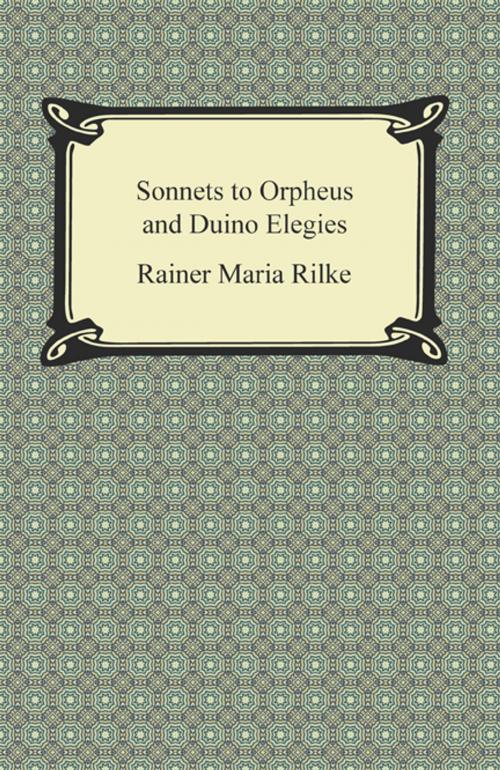| Author: | Rainer Maria Rilke | ISBN: | 9781420950298 |
| Publisher: | Neeland Media LLC | Publication: | December 15, 2009 |
| Imprint: | Digireads.com Publishing | Language: | English |
| Author: | Rainer Maria Rilke |
| ISBN: | 9781420950298 |
| Publisher: | Neeland Media LLC |
| Publication: | December 15, 2009 |
| Imprint: | Digireads.com Publishing |
| Language: | English |
The cycle of 55 sonnets that comprise Rainer Maria Rilke's "Sonnets to Orpheus" were written in a period of three weeks during 1922, a time which the poet himself described as a "savage creative storm." Inspired by the death of his daughter's friend, Wera Knoop, Rilke commenced to the production of "Sonnets to Orpheus," a work filled with mythological and biblical allusions. During the same burst of creative energy he set to working on the completion of the "Duino Elegies," a work begun some ten years earlier but set aside due to Rilke's own emotional distress over the tragic events of World War I and his conscription into the Austro-Hungarian army. He wrote in a letter to the deceased girl's mother that Wera's ghost was "commanding and impelling" him to write. The results of this "savage creative storm" are generally considered as Rilke's masterpieces. "Duino Elegies" is an intensely spiritual group of verses that ponders the beauty and existential suffering of life. Together these works exhibit why Rilke is widely recognized as one of the most lyrically intense of all German-language poets.
The cycle of 55 sonnets that comprise Rainer Maria Rilke's "Sonnets to Orpheus" were written in a period of three weeks during 1922, a time which the poet himself described as a "savage creative storm." Inspired by the death of his daughter's friend, Wera Knoop, Rilke commenced to the production of "Sonnets to Orpheus," a work filled with mythological and biblical allusions. During the same burst of creative energy he set to working on the completion of the "Duino Elegies," a work begun some ten years earlier but set aside due to Rilke's own emotional distress over the tragic events of World War I and his conscription into the Austro-Hungarian army. He wrote in a letter to the deceased girl's mother that Wera's ghost was "commanding and impelling" him to write. The results of this "savage creative storm" are generally considered as Rilke's masterpieces. "Duino Elegies" is an intensely spiritual group of verses that ponders the beauty and existential suffering of life. Together these works exhibit why Rilke is widely recognized as one of the most lyrically intense of all German-language poets.















